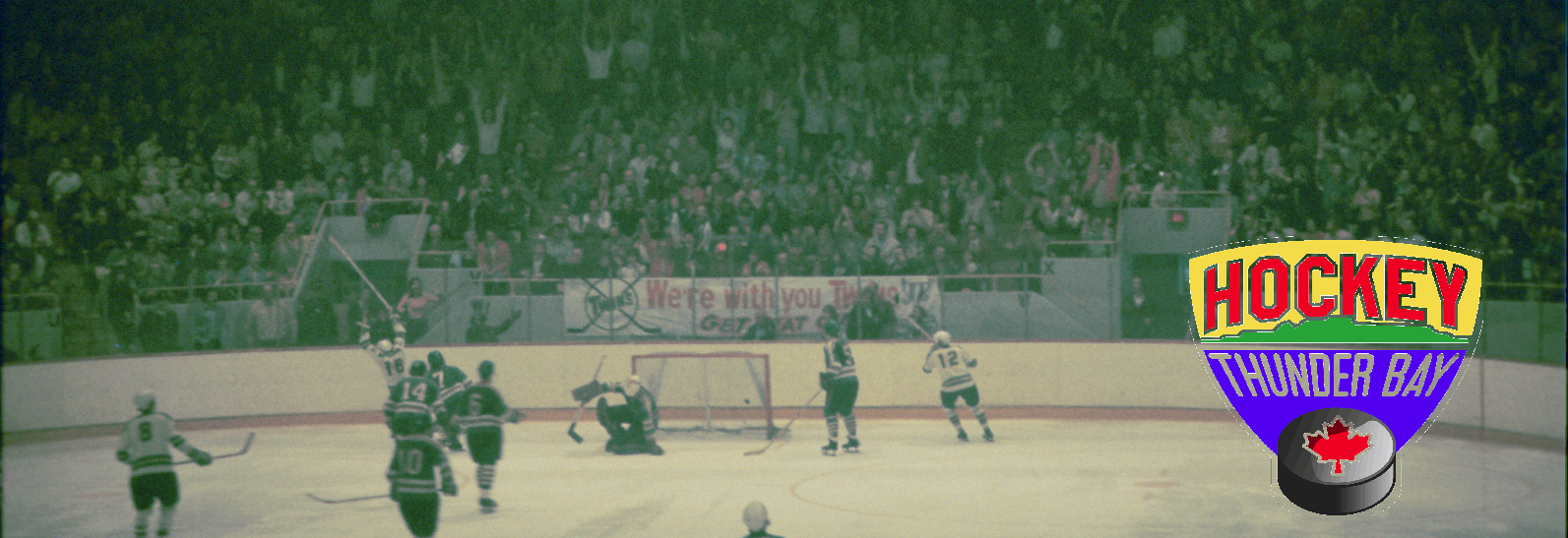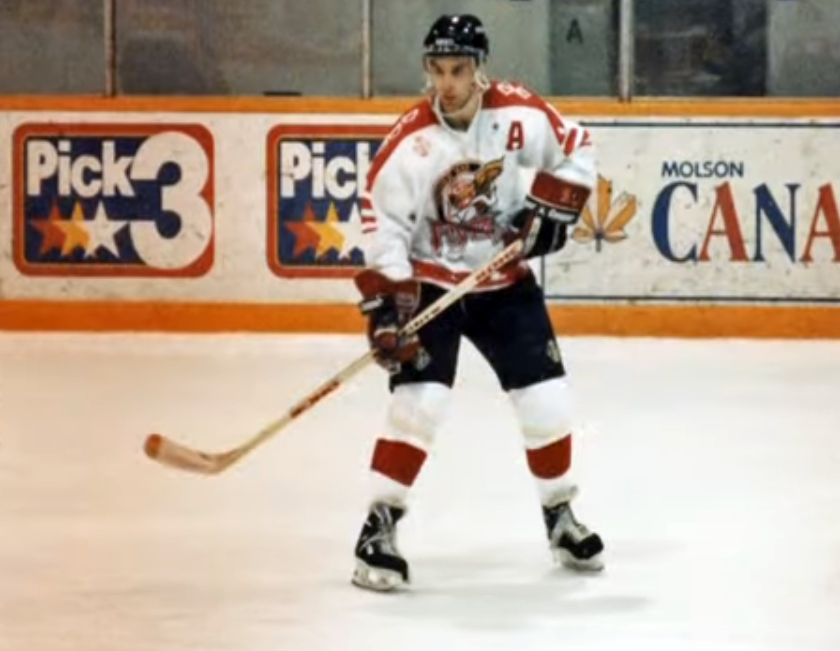 THE 1992 Centennial Cup in Winnipeg certainly boasted some impressive teams taking part.
THE 1992 Centennial Cup in Winnipeg certainly boasted some impressive teams taking part.
Not only were the Thunder Bay Flyers making their second consecutive appearance at the national Jr. A event, the two-time defending champion Vernon Lakers were there once again in search of a three-peat.
With Thunder Bay, under head coach Dave Siciliano, leading the Flyers to a Centennial Cup title in 1989, and Vernon winning it all in 1990 and 1991, the three other competing teams had to have known they would be in tough.
Those trio of clubs were the Halifax Mooseheads, champions of the Maritimes as well as the Fred Page Cup Eastern Canadian winners, along with Winkler Flyers, who claimed both the Manitoba Junior Hockey League and ANAVET Cup West Region honours, and the host St. James Canadians.
Buoyed by taking the Dudley-Hewitt Cup on home ice, the Flyers looked to improve on a one-win, three loss, which were all by just one goal, performance the year before.
“That ‘92 team was actually a rebuilding year with some holdovers from our ‘91 team,” offered Siciliano on his charges that earned another shot at Canadian Jr. A supremacy.
“We lost in the semifinals in the USHL but regrouped and excelled on the Centennial Cup trail. We were a young team compared to the other Centennial Cup teams in Winnipeg so we weren’t given much of a chance.”
Opening up round robin play, the Flyers took on St. James and went on to outscore them 7-4.
Next came the highly-touted Vernon squad and in an epic battle, the Lakers would eventually prevail 5-4 in double overtime.
“Vernon was really good and had a guy named Scott Longstaff playing for them,” recalled Flyers’ forward Kevin Hoogsteen.
“He had something like 20 points that week and was a very skilled player,” Hoogsteen added in discussing Longstaff, who would eventually go on to lead the event in scoring and be named the Centennial Cup’s Most Valuable Player.
Taking their 1-1 record into their next game, Thunder Bay was all business as they went on to crush Winkler 9-2 in an all-Flyers match-up.
With a semifinal slot already secured, the team had an off-day in their round robin finale and were thumped 9-3 by Halifax.
Even with that setback, the squad finished in a three-way tie for second in the standings at 2-2, but earned the No. 2 seed going into the playoff round by virtue of a better goal-for/goals-against ratio.
At the Centennial Cup banquet held the day before the semifinals, a trio of Flyers’ players collected some hardware.
Mike Figliomeni, the club’s leading scorer throughout the season, was tabbed the Centennial Cup’s Most Sportsmanlike Player.
Also garnering accolades were stalwart blueliner Jason Wright and netminder Chris Burns who were named to the All-Star Team at defence and goaltender respectively.
The efforts by the three would aid in each of them earning NCAA Division I scholarships as Figliomeni and Wright both went to Michigan Tech while Burns headed to Denver.
Of note, also recognized at that awards ceremony was future Hockey Hall of Fame Honoured Member Paul Kariya who was named the Canadian Junior Hockey League’s Player of the Year for 1991-92.
Earning that berth in the semis, Thunder Bay knew this was their chance to prove the doubters wrong.
“As usual, at the Centennial Cup, we didn’t get much respect because we had played in the USHL,” reflected Siciliano. “We adjusted in the tournament, going 2-2 in the round robin, and the players became more confident.”
Another future NCAA player on that team was Barry Schutte, who helped solidify the roster up front.
“Not a lot of pro prospects with NHL futures, but we were a hard-working group of local boys that loved the game, and each other, and would do whatever it took to win.”
That chance to win started with a rematch vs. the Mooseheads in semifinal No. 1.
Next week: Part IV looking back at the Thunder Bay Flyers quest for the 1992 Centennial Cup.

